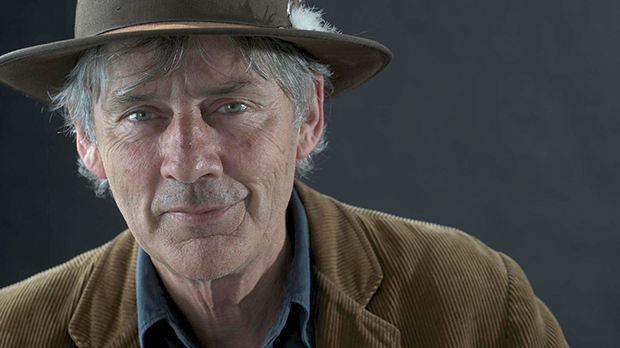
“The Southern Ocean is untameable, and as any fisherman will tell you, every time you go out to sea you take your life in your own hands. No-one can rule the sea here. It’s beyond that.”
Shane Howard has just released his 13th solo album, Deeper South, an LP informed by his birthplace on Victoria’s Southern Coast, as he explains to SHANE PINNEGAR.
As lead singer, guitarist and songwriter of Goanna, and more recently a globally recognised solo artist, Shane Howard has been one of this country’s finest musical storytellers since Goanna released the Spirit Of Place album in 1982.
That year’s single, Solid Rock, remains an enduring Aussie anthem, as well as a resolute call for justice for our indigenous people. He admits, however, that it took him a while to not be threatened by living in the shadow of that huge hit.
“I know there was a time, probably in the years after Goanna finished particularly, where everyone wanted to talk about Goanna, and I just wanted to be me,” he laughs, “and I felt like I was dragging a huge bag of predetermined ideas around behind me. But Solid Rock, it broke me and it made me, and the same with Goanna. It took me a long time I suppose to get easy with that and to realise that this far down the track, Solid Rock – I live with it very easily, I’m proud of it… but look, there are 200 other songs there in the catalogue, and for me as the writer they’re all valid.”
Howard says his birthplace, a small town called Dennington on the coast of the Great Southern Ocean, provided the spark within for his new album, Deeper South.
“Well, this is wild country here,” he explains. “When they settled back 150 years ago or more, 160 years ago, and cleared the old bush, they turned it into farmland. This part of the world is very different from the rest of Australia. It’s not deserts and windmills. It owes more to its Celtic heritage.
“So the only sense of the wild was the ocean in many ways, and it’s the edge of the world here, too. So you’re totally at the mercy of the sea in this part of the world. The wind blows in off the sea, it comes from Antarctica. It makes you obedient. The Southern Ocean is untameable, and as any fisherman will tell you, every time you go out to sea you take your life in your own hands. No-one can rule the sea here. It’s beyond that.”
A strong believer in the indigenous concept of songlines – telling a connected story through a piece of work rather than putting random songs together to make an album – Howard draws comparisons to Deeper South being informed about world issues, and feeling like we’re being tossed about a raging sea in a small boat.
“Ours is a rapidly changing world, and I think it’s a world in crisis. I don’t want to draw too long a bow, but I think it’s a time of really rapid change and a digital age where the old ways of doing things are really seriously under challenge, and the old guard is holding onto that, but I think that the world of the billionaires running the world is really also under serious scrutiny and serious challenge.
“In terms of the challenges of climate change and competing ideologies, it feels like the end of an era, and the abiding imagery for this they call it is a lone person, a little boat out in the middle of a pretty wild and unforgiving sea, and I suppose that’s a metaphor for this record, and what is there to hold onto in that reality?
“I think Leonard Cohen says love’s the only engine of survival, and I think love is one of the things that really underpins this record in all its forms. Spiritual, whether that’s divine or whether it’s the love of the other; the love of a woman, the love of the land, the love of music, or love gone wrong.”